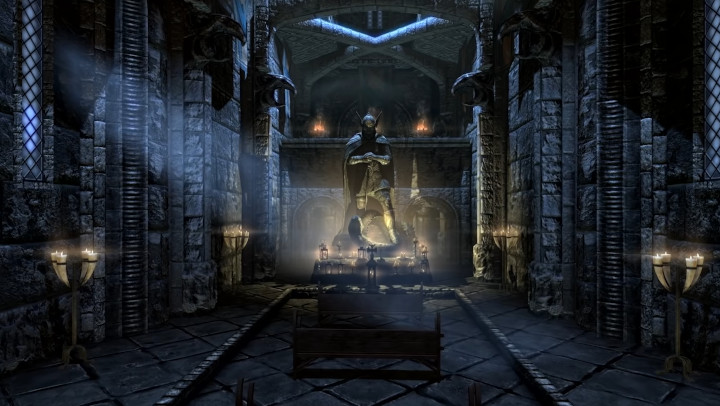
If you’ve played a lot of open-world fantasy RPGs over the past 20 years, you’ve almost certainly encountered the encumbrance game mechanic. You know the one, where you’re looting a dungeon and you pick up one too many items, and all of a sudden your character feels like they’re walking through molasses.
I am a habitual hoarder in my video games. I can never have enough chests in Minecraft, for example, and no matter how useless they are, I just can’t help but to pick up every spoon and plate off every single table in The Elder Scrolls. So the encumbrance mechanic has always been the bane of my existence. In fact, it’s a good part of the reason why I never finished the main story in Fallout 4 or Skyrim — or hell, even Oblivion, for that matter.
I’m not the only person who hates encumbrance. There are memes about it. There are lengthy forum threads about it. There are plenty of articles very similar to the one I’m writing now. In fact, so much digital ink has been spilled over this game mechanic that it’s probably pointless to throw anymore words into that pile. But I can’t help myself; I have strong opinions on the matter and I can’t stop myself from blathering about it.
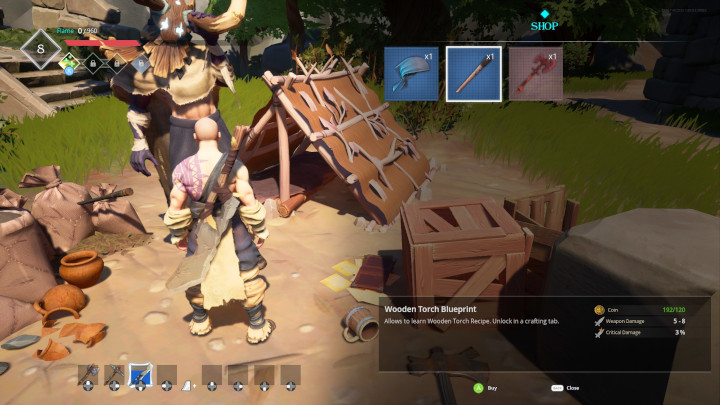
I most recently encountered encumbrance in Frozen Flame, which just entered Early Access this month, so it’s been on my mind again. As I slice and chop and build my way through this open world, I can’t help but wonder, why in the name of Tamriel is this mechanic so common when it’s pretty much universally despised?
PC Gamer actually talked to Konrad Tomaszkiewicz, game director of The Witcher 3: Wild Hunt, about encumbrance, and the funny thing is that I don’t even remember The Witcher 3 having an encumbrance system at all. Maybe that’s a testament to how well-implemented it is in that game, but it’s possible the opposite is true: Perhaps it was handled so badly that my brain just blocks it out altogether. But CD Projekt Red’s more recent title, Cyberpunk 2077, also has an encumbrance mechanic, so I’m not sure how I’d forgotten that the mechanic exists in The Witcher 3.
One justification Tomaszkiewicz gives is immersion. In real life, you can’t walk around carrying thousands of pounds of metal weapons, so it’s unrealistic to allow you to do that in a video game. But I don’t buy this argument. I mean, in real life, there’s no situation in which I’d be walking around with a backpack full of swords, only to pick up a single wooden dish off a table and all of a sudden not be able to walk anymore. This is “the straw that broke the camel’s back” taken to the most ludicrous extreme.
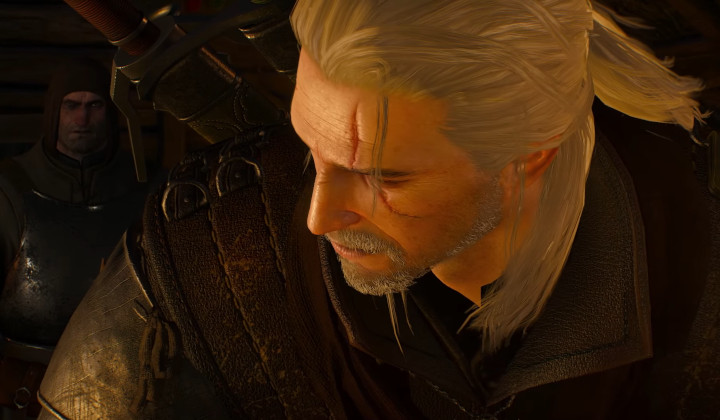
Now, I get that immersion isn’t necessarily about realism. To feel immersed in a world, you need to buy into the rules by which that world operates; those rules don’t have to map perfectly to real life. I feel pretty immersed in Skyrim, for example, when a dragon swoops down from the sky and the music swells. In my non-video-game life, I’ve never seen a dragon let alone engaged in battle with one, and the high points of my life aren’t punctuated with badass musical swells.
(In film, elements that the audience can hear but the characters can’t are referred to as non-diegetic elements. This isn’t important for this article, but I thought I’d drop this little factoid here, otherwise my college Film Studies credits are completely wasted.)
But my point is that fantasy worlds need to have consistency in their rules, and that consistency is more important than how accurately those rules map to reality. So an encumbrance system does create a consistent set of rules for a game world. I think that’s probably the argument that Tomaszkiewicz is making, rather than trying to pretend that encumbrance makes a game more realistic.
If you read deeper into that article, though, you’ll actually find a much better justification for encumbrance systems. Basically, inventory space takes up memory, and memory is at a premium in these massive, gorgeously rendered video games. So limiting carry capacity is a trick that also saves on resources for your gaming hardware, allowing those resources to be spent on other things. And that makes sense. I’ll accept that.
But I think there’s an argument to be made for at least rethinking this mechanic. As game developers solve more and more complex problems, encumbrance seems very much like something that can be streamlined and improved — at least to the point where it doesn’t feel like such a roadblock to enjoying some otherwise incredible video games.
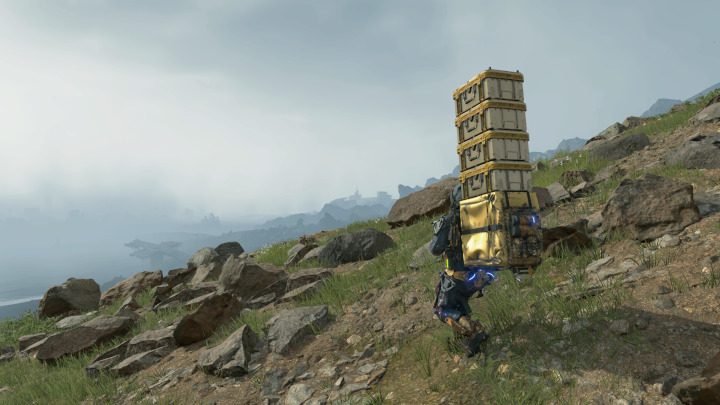
The best use of encumbrance system I’ve ever encountered was in Death Stranding. I mean, you could almost refer to Death Stranding as Encumbrance Simulator, since the core game mechanics are basically about carrying way too much weight across post-apocalyptic landscapes. But because the game is built upon the foundation of encumbrance, it actually works really hard to make sure that encumbrance actually means something.
There are two main ways the game handles this: First, it makes the tedium the point of the game rather than just an aftereffect of the tension between game mechanics. Death Stranding revels in its treacherous climbs, where the slightest misstep can cause you tumbling off a cliffside, and your cargo smashing into a rock and being irreparably damaged. A lot of the game’s tension comes from this. But second — and more importantly — whenever you overcome an obstacle by gritting your teeth and pushing through the tedium, the game rewards you with something that will permanently make those treks almost laughably easy. From motorbikes to robot legs to ziplines, you’ll end up with a really powerful arsenal of tools by which to mitigate the effects of encumbrance. So Death Stranding effectively turns encumbrance, which is disempowering by its very nature, into something that ultimately makes you feel empowered.
And I think that’s the trick: Encumbrance can’t be something that’s just mindlessly tacked onto a video game’s features list; developers must consider deeply how the mechanic impacts the game on a whole. Death Stranding gives us just a peek at what’s possible to do with a really well-implemented encumbrance system, and I hope other developers are taking notes.
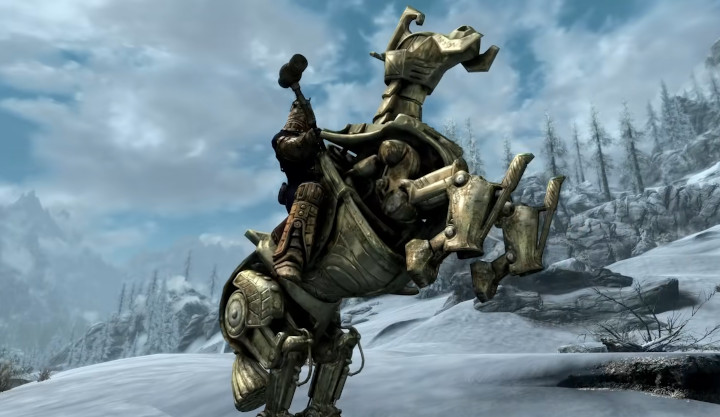
While I dream of an era in which encumbrance just doesn’t exist anymore, I have a feeling it’s going to be around for a good long while. If that’s the case, though, I definitely think we need to raise our expectations. Encumbrance shouldn’t be something we just accept anymore; we should take developers to task when they implement it sloppily, and heap praises upon them when they get it right. A better world is possible, and if encumbrance needs to be a part of that world, then it must be reshaped, reimagined, and revised until it fits comfortably.